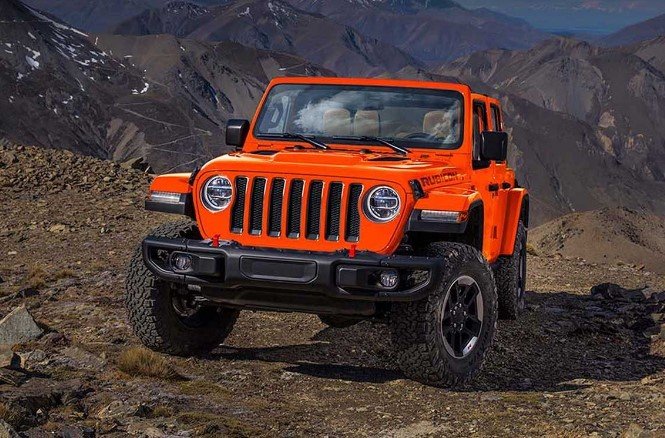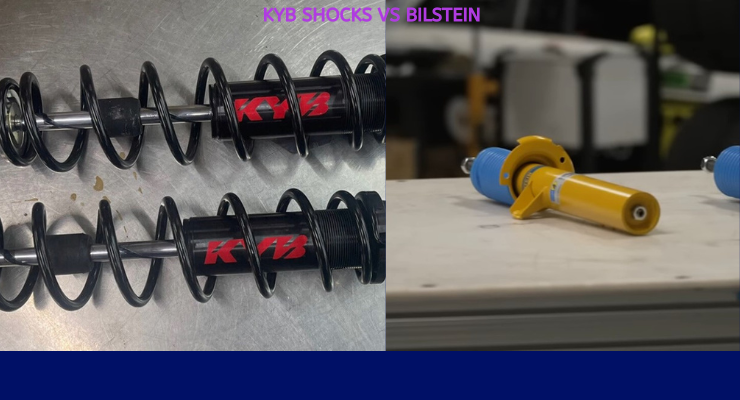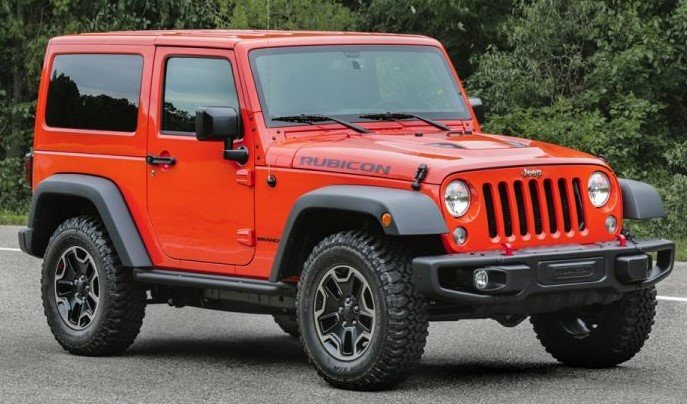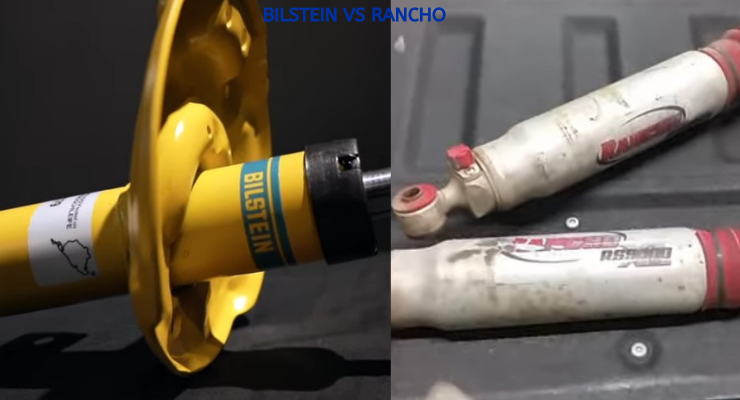Jeep Trail Rated vs Non Trail Rated: The Better Choice
Ever come across the iconic “Trail Rated” badge on some Jeeps and wondered how it sets them apart from the rest? Trail-rated and non-trail-rated vastly differ from each other in a lot of other areas. And you must know about them in detail if you’re considering buying a Jeep soon.
So, what’s the difference between Jeep Trail rated vs Non Trail rated? Well, Trail Rated jeeps have more features and equipment that enhance their performance, durability, and safety on challenging terrains. Oppositely, non-Trail Rated ones have lower performance, reliability, and value on rough terrains.
In this post, we’ll compare these two categories of Jeeps head-to-head, so you can make an informed decision and select the best option for your specific needs and desires. So, let’s embark on this exciting journey right now!
Jeep Trail Rated vs Non Trail Rated: Differences At A Glance
Let’s quickly check out the key comparisons between these two types of Jeeps:
| Trail Rated Jeep | Non-Trail Rated Jeep | |
|---|---|---|
| Purpose | Prioritizes off-road capability | Prioritizes comfort and fuel economy |
| Budget | Higher price due to enhanced features | More budget-friendly option |
| Intended Use | Off-road expeditions, camping, towing | Commuting, casual driving, urban use |
| Driving Experience | Designed for experienced off-road drivers | Suitable for novices or casual drivers |
| Location | Ideal for rough terrains and harsh weather | Best for urban areas with good road conditions |
What Is A Trail-Rated Jeep?
“Trail Rated” is a measurement methodology that Jeep uses to establish and predict off-road vehicle capabilities. Being “Trail Rated” means a vehicle is fully fit for off-roading usage.
This rating is based on 5 essential categories of performance:
- Water fording
- Traction
- Maneuverability
- Ground clearance
- Articulation
Testing and Certification
Trail Rated vehicles undergo extensive testing and are certified by the U.S. Government and the Nevada Automotive Test Center (NATC) on various terrains.
This rigorous process ensures that these vehicles meet the high standards for off-road performance set by Jeep.
Trail-Rated Jeep Models
- Jeep Wrangler
- Jeep Renegade
- Jeep Grand Cherokee
- Jeep Compass
- Jeep Cherokee
Each of these models is carefully designed and engineered to excel in all types of off-road conditions.
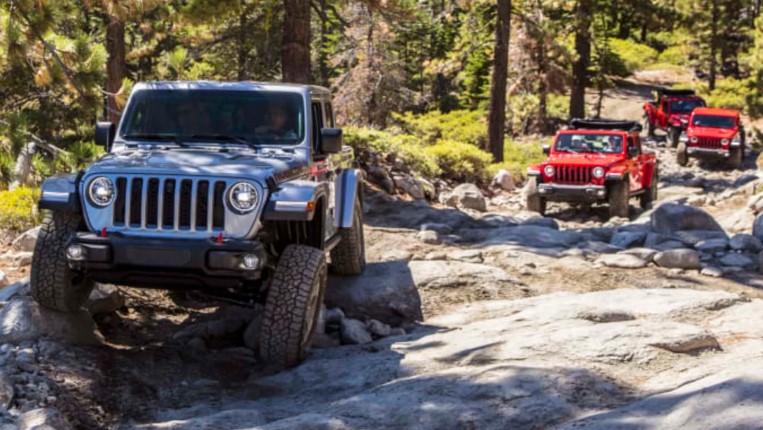
Special Benefits of Owning a Trail-Rated Jeep
Some of the special perks of owning a trail-rated jeep are as follows:
- Better performance on challenging terrains: Imagine conquering steep, rocky hills or easily navigating muddy trails. Trail Rated Jeeps are built to handle these situations.
- Enhanced durability for off-road adventures: With Trail Rated jeeps, driving through a dense forest or over a sandy beach is a worry-less adventure.
Trail Rated Jeeps are designed with protective features such as skid plates, ensuring their durability and reliability during off-road escapades.
- Improved safety in off-road conditions: Think about crossing shallow streams or flooded roads. In this case, you can rest assured that your vehicle is equipped to handle water fording safely. This type of Jeep has special features to make it real.
Features like high air intake and sealed electrical connections are common in these jeeps.
- Greater versatility for various driving situations: A Trail Rated jeep can effortlessly transition from paved roads to off-road trails, with your vehicle adapting seamlessly to the changing conditions.
What Is A Non-Trail-Rated Jeep?
“Non-Trail Rated” Jeeps are vehicles that don’t meet the minimum requirements established for a “trail” vehicle.
These models lack the specific features or capabilities needed to be fit for off-roading.
Reasons for Not Being Trail Rated
Some Jeep models don’t receive the Trail Rated badge. It happens mainly because of the absence of certain equipment, features, or design elements that enhance off-road capability.
Instead of off-roading features, these vehicles are typically designed to focus on on-road performance, economy, and comfort.
Non-Trail Rated Jeep Models
The following Jeep models are examples of Non-Trail Rated vehicles:
- Jeep Patriot
- Jeep Liberty
- Jeep Commander
- Jeep Compass Sport
These models may not be ideal for those seeking a vehicle explicitly built for off-road adventures. However, they’re perfect for a general user who wants to drive with family members.
Benefits of Owning a Non-Trail-Rated Jeep
Choosing a Non-Trail Rated Jeep comes with certain advantages, particularly for those who prioritize on-road comfort.
These vehicles always offer the following benefits:
- Improved fuel efficiency: Non-Trail Rated Jeeps often have lighter frames and more streamlined designs. This contributes to better fuel efficiency during daily commutes or long road trips.
- Enhanced on-road comfort: Non-Trail Rated Jeeps typically have a smoother, more comfortable ride on paved surfaces. This makes them suitable for city driving and highway cruising.
- Lower cost of ownership: Non-Trail Rated Jeeps usually have a lower price tag and can be more affordable to maintain and insure. This aspect makes them an attractive option for budget-conscious buyers.
How To Choose Between Trail-Rated And Non-Trail-Rated Jeeps?
In order to make an informed decision about whether you need to choose the Trail Rated or the Non-Trail Rated option, you’ll first have to know what factors should influence your decision.
Factors Influencing the Decision
Several factors will impact your decision on whether you should pick a Trail Rated or Non-Trail Rated vehicle. Such as:
- Personal Preference
If exploring rugged terrains is your passion, a Trail Rated Jeep with features like skid plates, improved suspension, and better ground clearance would cater to your needs.
However, if you value a smooth, comfortable ride and do not intend to venture off-road, a Non Trail Rated Jeep would be more suitable.
- Budget
Generally, Trail Rated Jeeps come at a premium due to their enhanced features and capabilities. For example, a Non-Trail Rated Jeep Grand Cherokee might cost around $35,000, while a Trail Rated version could cost around $45,000.
If you’re on a tighter budget, a Non-Trail Rated Jeep or a used model could be a more cost-effective choice.
- Intended Use
If your primary purpose is commuting to work and driving around town, a Non-Trail Rated Jeep will always offer better fuel efficiency and a smoother ride.
But, if you frequently participate in outdoor activities like off-road expeditions, camping trips in remote locations, or towing a camper through rugged terrain, a Trail Rated Jeep’s superior capabilities would be more beneficial.
- Driving Experience
Trail Rated Jeeps are designed for those experienced in off-roading. So, if you’re a novice, a Non-Trail Rated Jeep will be more appropriate for you.
As you gain experience and confidence, you may decide to upgrade to a Trail Rated model for enhanced performance.
5. Location
If you live in a mountainous region with steep inclines, rocky trails, or harsh weather conditions, a Trail Rated Jeep would be better suited to tackle these challenges.
However, a Non-Trail Rated Jeep should suffice for your everyday needs if you reside in an urban area with well-maintained roads.
Final Verdict
Well, there you’ve it, people. To wrap it all up, jeep trail rated vs non trail rated, the latter one is not suitable for rough usage outside traditional roads, but Trail Rated vehicles are.
So, if you are deciding on buying a Jeep of either type, you should know that, in the end, it all comes down to what you truly desire and need from your Jeep. Will you embrace the untamed world of off-roading with a rugged Trail Rated Jeep? Or, will you opt for the smooth, comfortable ride of a Non-Trail Rated Jeep?

